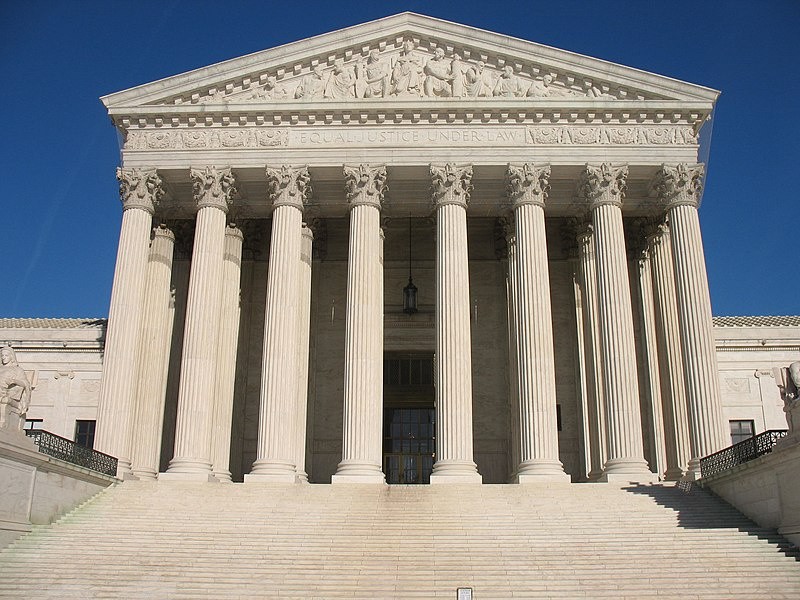Colorado lawmakers, a former coal state, have approved more than 50 climate-related bills since 2019.
The liquor shop in Morris, Minnesota, uses solar electricity to chill its beer. Athens, Ohio, voters placed a carbon tax on themselves. Citizens in Fairfax County, Virginia, collaborated for a year and a half to create a 214-page climate action plan.

Local Government Action
As national action slows, municipalities and states around the country are stepping up their efforts to combat climate change.
This week, the Supreme Court limited the EPA's jurisdiction to control greenhouse gas emissions from power plants, one of the major drivers of global warming pollution - the latest example of how the Biden administration's climate tools are being eroded.
Local efforts gained prominence during the Trump administration, which aggressively attacked environmental and climate laws.
Local action is now even more crucial, according to scientists, for the United States - which ranks second only to China in terms of emissions - to have a hope of assisting the world in avoiding the worst impacts of global warming.
This haphazard approach is no replacement for a comprehensive national plan.
Local governments have limited power, jurisdiction, and resources.
However, as legislative and regulatory choices in Washington, D.C. grow increasingly limited, "States are extremely crucial to helping the country as a whole accomplish our climate goals," said Kyle Clark-Sutton, manager of RMI's analysis team for the United States program.
"They have a genuine chance to lead. They've been on top."
According to RMI's new state scorecards, New York and Colorado, for example, are on target to cut electricity-related emissions by 80 percent or more by 2030, compared to 2005.
"We've never concentrated on climate as the thing to talk about because you don't have to," said Blaine Hill, municipal manager, citing the benefits of cheaper energy costs and more local economic activity from locally generated electricity. "You can get around it by just getting started."
Morris' community center, library, liquor store, and municipal hall have solar panels.
It features a charging station for electric vehicles at the grocery store and is working on a composting program.
The institution has solar panels on poles tall enough for cows to graze beneath and two wind turbines.
The West Central Research and Outreach Center at the University of Minnesota uses wind energy to produce fertilizer for crops that grow underneath the turbines, avoiding the usual, emissions-intensive process of producing fertilizer, which is often obtained from petroleum.
Mike Reese, the research center's director of renewable energy, said it didn't matter that he disagreed with Troy Goodnough, the sustainability director at the University of Minnesota Morris.
"Troy is more liberal, while I'm more conservative," Mr. Reese explained. "However, we share the same principles regarding climate change, resilience, and, most importantly, producing money and making our society better for future generations."
Mr. Goodnough stated that the campus frequently assisted in the demonstration of technologies that were ultimately accepted by the city.
This has encouraged citizens to examine possibilities they would not have considered otherwise.
Community Benefits
One benefit of community plans is that they may be adjusted to the demands of the local economy - in Morris' case, farming.
Phoenix, a large, hot, car-dependent metropolis, has prioritized electric vehicle adoption and reducing the consequences of potentially fatal heat waves.
The city has set aside $6 million to plant trees in low-income districts. It has laid down 40 miles of cool pavement, which can help reduce overnight temperatures.
It also intends to put 280,000 electric vehicles on municipal streets by 2030.
City Council
The city council committee responsible for developing the plan comprises elected officials and representatives from utilities, vehicle manufacturers, and environmental justice organizations.
It held one discussion between housing developers who were hesitant to install charge stations for electric vehicles in new buildings and officials from Ford and General Motors.
According to Councilwoman Yassamin Ansari, the seminar appeared to assist developers in recognizing that adding chargers was in accordance with market trends.
Conversations tend to get more politicized as they progress from the municipal to the state level.
Related Article : Experts are Saying that Renewable Sources are Not Enough to Solve Europe's Energy Crisis
For more environmental news, don't forget to follow Nature World News!
© 2025 NatureWorldNews.com All rights reserved. Do not reproduce without permission.





